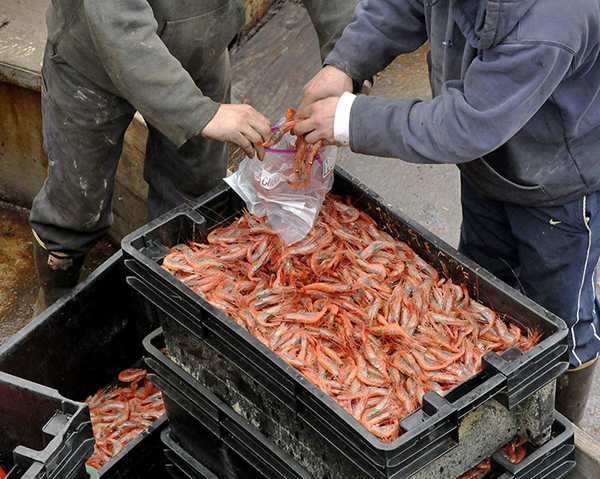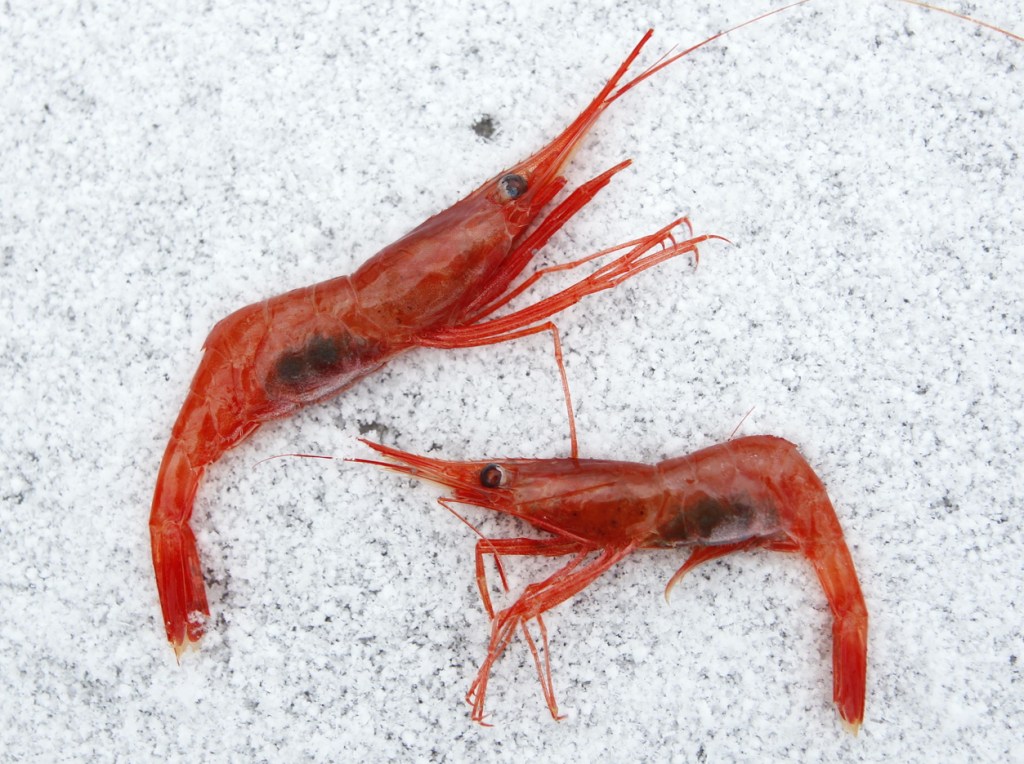Fishermen will lose income and shrimp processors fear their industry will be harmed worldwide because of regulators’ decision Tuesday to cancel the 2014 shrimp fishing season in the Gulf of Maine in response to the species’ collapse.
The Atlantic States Marine Fisheries Commission voted to close the Gulf of Maine to shrimping after a harvest last winter that was the smallest since the last shutdown of the fishery, in 1978.
“We are screwed,” said Mel Cushman of Port Clyde, whose husband, Randy Cushman, has been fishing for shrimp and groundfish for more than 30 years. “Shrimping is half of our (yearly) income. We don’t know what we are going to do.”
North Atlantic shrimp provide a small but valuable fishery for New England fishermen, with several hundred boats going after them using nets and traps. About 85 percent to 90 percent of the annual harvest in the Gulf of Maine is typically caught by Maine boats.
This summer, a survey indicated that the northern shrimp stock was at its lowest level since the annual trawl survey began in 1984. A report released Nov. 21 by the fisheries commission’s Northern Shrimp Technical Committee concluded that the stock has collapsed.
The report recommended a moratorium on shrimping in 2014 to maximize the species’ spawning potential. It attributed the collapse in part to warming ocean temperatures.
Regulators said the warming ocean and the absence of the normal springtime surge of plankton, a critical link at the bottom of the ocean’s food chain, have hurt northern shrimp. Predation by other fish species and overfishing a few years ago also contributed to the collapse.
An advisory council had recommended that the fishery remain open on a limited basis in 2014, from mid-February through March. Past seasons have run from December through May.
Spencer Fuller, the shrimp product line manager for Cozy Harbor Seafood in Portland, said that recommendation was rejected by the commission, which represents Maine, New Hampshire and Massachusetts. He said the compromise would have kept the industry going and prevented its reputation from being damaged in world markets.
“We felt the risk of any damage to the fishery based on that proposal would have been minimal,” Fuller said. “We certainly don’t agree with (the commission’s) Draconian approach.”
Fuller said fishermen and processors were hurting even before Tuesday’s decision.
“The damage started last year,” he said, noting that previous weak seasons have produced catches so small that markets in Europe have dried up.
Even if the fishery recovers, processors will be back in the same boat they were in after a slump in 2000-01, when they had to lower prices to win back customers.
“All of the work that has been done over the past 12 years is lost, as far as marketing and product development,” Fuller said. “It’s dire straits.”
The shrimp harvest averaged about 25 million pounds a year from 1969 to 1972 before falling below 1 million pounds in 1977, leading to a closure of the fishery a year later. There were similar down cycles in the late 1990s and early in the last decade. After each bust, the industry had to rebuild after losing customers.
Fuller said supermarkets will soon deplete the Maine shrimp that was caught early this year, if they haven’t run out already. “We have some inventory, but there is an end to it,” he said.
Seafood restaurants like DiMillo’s on the Water in Portland say they will have to remove shrimp dishes from their menus because supplies will run out soon. Fried Maine shrimp, fried shrimp rolls, and shrimp on the seafood platter could be among the casualties.
“Maine shrimp is a staple for us, a very popular menu item,” said Johnny DiMillo, one of the restaurant’s managers. “It’s going to be missed. You can’t get that flavor of Maine in any other type of shrimp. They are small but very sweet.”
DiMillo expects to run out of frozen Maine shrimp in the next few weeks. “We are going to buy whatever we can now,” he said.
Glen Libby, a former shrimp fisherman who operates Port Clyde Fresh Catch, a shrimp processing business in Port Clyde, said the 2013 shrimping season – limited to January through March – was a “bust” and it probably is a good idea to give the fishery time to recover.
Libby said ground fishermen found very few shrimp in their nets last summer, another sign that the northern shrimp population is in real trouble.
He worries about the fishery’s future, saying, “We could be in for a long stretch” without shrimp fishing in the Gulf of Maine.
Staff Writer Dennis Hoey contributed to this report.
Send questions/comments to the editors.




Comments are no longer available on this story